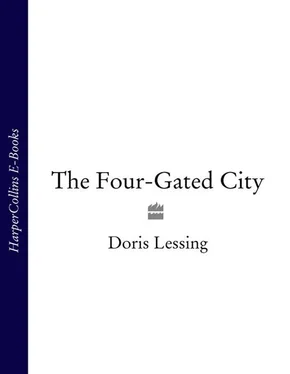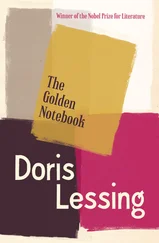At the Butts’s, Francis was able to be the clown, without conflict: his school personality and his holiday personality were one. Nanny Butts was not upset. She wrote: ‘Francis is a very cheerful little boy, always having his fun. It’s a blessing, when you think of his poor mother.’
But once, when Martha was down in the village, for she was to take Francis back to school, there was a glimpse of another Francis.
It was late evening, summer, and time for Francis to go to bed. Martha went out, through the cottage garden, into the long field beyond, which sloped down to a stream. Francis was walking up towards her, with a little girl. He was still a short stocky boy, his black head on the level of the frothy white of the half-ripe oats. He held the little girl’s hand, and was bending towards her with the gentle protectiveness an adult uses towards a child. A path led through a birch wood to a half-seen cottage. Francis led the child to the path, and there she ran away home, looking back to wave at Francis. He stood to wave at her smiling. The smile faded. He turned, and walked slowly along the edge of the field, serious, thoughtful, running one hand along the feathery tops of the oats. Then he saw Martha was waiting there. A moment when you could see the mechanism work: a startled defensiveness, then the smile fitting down on to the face: Francis raced up to Martha, hilarious, grinning, and as he reached her, shouted: ‘Supper, jolly good!’ and cartwheeled up through the garden into the cottage.
In between Paul’s visits, when the door to the basement was shut, the two upstairs had learned not to go down, unless asked. It was Lynda who telephoned from one part of the house to the other, to ask if they would like a cup of coffee. And she never asked Mark by himself. This meant, when you thought about it, that she must be watching through the windows to see how people came in and out. Also, when you thought about it, that the invitation was the result of some conflict with Dorothy. For on these occasions Dorothy would sit silent, rather apart, watching. And Lynda would slide her small defiant, guilty looks, like a girl who has won a victory over her parents. Mark was polite to Dorothy. It was not that he wished her ill, or even wished her away: if Lynda wanted her there, then that is what Lynda should have. But there was no connection between himself and Dorothy: he was courteous to his wife’s friend. The emotional reality of Dorothy and Lynda, whatever that was, was not real for him. He was Lynda’s husband, tenderly protective, attentive to Lynda. The four of them would sit for an hour or so in the extraordinary room, which now had an incongruity built into its very substance. The beautiful furniture, every piece of which was a museum-keeper’s dream, the rugs, Lynda’s small belongings, a favourite lamp from her own home, books – this was one world, Lynda’s. But every inch of the walls, every surface, was crammed with Dorothy – a magpie schoolgirl who had crushes on Royalty and film stars. The curtains were always drawn: they lived in artificial light. There was a low stuffy smell of sickness and drugs. The four sat drinking coffee, and Mark talked to Lynda, while Martha tried to talk to Dorothy; who, however, never took her sad anxious gaze off Lynda.
A tension that was all anxiety slowly built and built. Lynda smoked furiously, scattering ash. Then Mark would jump up, and say: ‘How about drawing the curtains for a bit?’
‘Yes, yes,’ Lynda would most eagerly assent, but with a hasty glance towards Dorothy – to reassure her that they would soon be alone again.
Mark drew back the curtains, and let in the cold day. There sat two ill women, exposed, smiling their fortitude.
Lynda’s fur coat, her handbag, a scarf, dark glasses, lay at random on chairs.
‘Lynda, wouldn’t it be better if …’
‘Yes,’ she said eagerly. ‘Yes, Mark …’ And she hung up the coat in the hall, and rushed off the other items into the bedroom, which, glimpsed through the open door, was a total disorder. She shut the door on the mess and sat smiling pathetically. By now they longed for him to leave.
Once, after they left, they heard how the two women started a violent quarrel before they had even got up the stairs. Then, weeping. Whose? They could not make out.
But Mark did not give up. For a while he asked them up to dinner once or twice a week. On these nights his new friends did not come, and Martha and he took trouble over the food.
There sat Lynda and Dorothy, with their handbags near them, on their best behaviour.
Mark remained a husband. All of his best qualities, qualities he had not known until then he possessed, had gone into Lynda, when he discovered he had married a sick woman: for months, then years, while Lynda fell to pieces, he had used a loving strength which (and this was the point) he simply could not believe she did not need now. But she had not been able to stand it then and she could not stand it now.
At the end of one of these dinner parties she said, suddenly, in a low fierce voice, but smiling still, so afraid was she of her own violence: ‘Leave me alone, Mark. You’re killing me.’
And she ran off down to the basement in tears, Dorothy lumbering after her.
Throughout all of this, were incidents of a different kind: but there had to be three or four of them before they were seen as a pattern.
Dorothy had taken over the management of the flat, though Mark and Martha had offered to run it with the house. Dorothy was, or had been, an efficient woman. During the war she had managed a factory that made parts of bombs: she had had about forty women working under her. Becoming normal, for Dorothy, meant once more learning to be competent. It was she who got in a charwoman, ordered food, sometimes went shopping – managed. Then something went wrong, a little thing, like a tap, or the telephone. Dorothy contacted the machinery of the outside world. A week or so later, Martha would find one of the women carrying water downstairs in a bucket, or coming up to use the telephone. When the affair finally came into her hands, or Mark’s, Dorothy would supply a piece of paper on which was written something like this:
| Friday evening. |
Lynda said the tap was dripping. I rang five plumbers. Three didn’t answer. This in spite of the fact they advertised to ring after six. The fourth said he would come at nine. He never came at all. The fifth said he would come on Saturday morning at ten. |
| Saturday morning. |
We waited for the plumber. When he had not turned up by twelve, I went out shopping. Lynda went to sleep. The man came while I was out. I telephoned him that afternoon. There was no reply. |
| Saturday evening. |
I telephoned him. His wife answered. She said it was the week-end. Her husband did not work over week-ends. She suggested I ring Mr Black of Canonbury. His wife said he worked at week-ends. I left a message. |
| Sunday morning. |
I rang Mr Black. He was out. His wife said she would try to get him to come in the afternoon. I stayed up instead of going to sleep. |
| Sunday afternoon. |
Mr. Black telephoned. He said if it wasn’t urgent he would come on Monday. I told him off. I told him if he was so slack he wouldn’t be any good as a workman. |
| Monday morning. |
I telephoned the first plumber. His wife said he would come that afternoon. |
| Monday afternoon |
He did not come. |
| By then the tap was leaking badly. I turned off the main. |
The question is: are we in a position to sue for loss of time and damage and inconvenience? When he turned up at last on Wednesday afternoon, he had the nerve to say he was going to send in an account for the first visit (see under Saturday morning), so I told him where he got off.
Читать дальше












